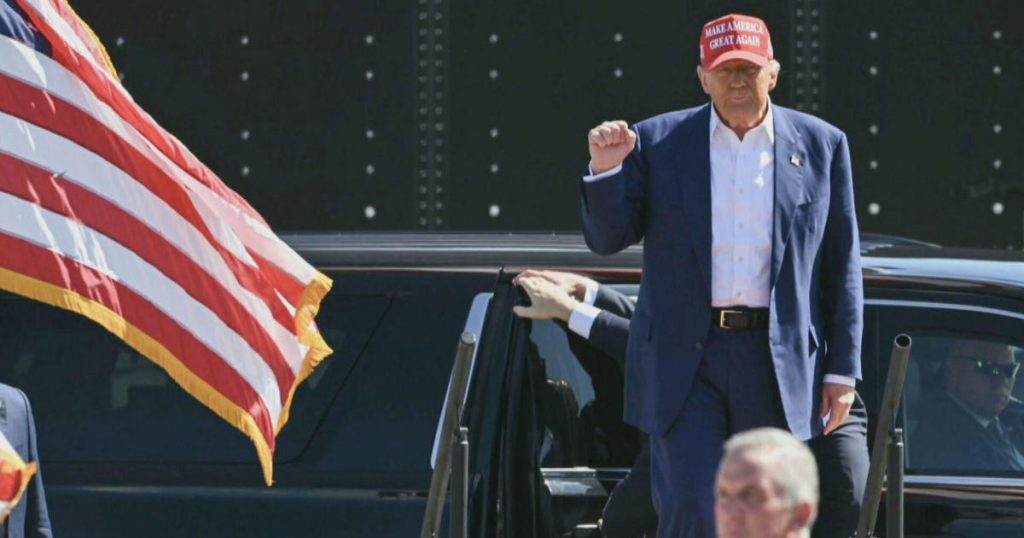Former President Donald Trump has once again stated that it is too late to have a second debate with Vice President Kamala Harris. During a rally in North Carolina, he mentioned that voting has already started, indicating that there is no longer enough time for another debate. This announcement comes after Harris accepted an invitation from CNN for a possible second debate in October. However, with the election already in progress, Trump seems to have made up his mind about not participating in another debate.
The decision not to have a second debate with Kamala Harris may seem abrupt, but Trump’s reasoning is based on the fact that voting has already begun. With the election process already underway, it would be logistically challenging to organize and conduct another debate at this point. Trump’s refusal to participate in a potential second debate could be seen as a strategic move to focus on other aspects of his campaign rather than engaging in another debate with Harris.
Despite Harris accepting an invitation for a possible second debate, Trump has made it clear that he believes it is too late for such an event. This decision could impact the election process by limiting opportunities for the candidates to debate and present their views to the public. With voting already underway, the focus shifts from debates to other campaign activities that could influence voters’ decisions leading up to Election Day.
The statement by Trump regarding the timing of a second debate with Harris raises questions about the importance of debates in the election process. While debates are traditionally seen as a crucial platform for candidates to discuss their policies and engage with voters, the timing of these events can significantly impact their effectiveness. Trump’s perspective that it is too late for a second debate highlights the challenges of organizing such events during the election season.
The refusal to participate in a potential second debate with Harris could impact the dynamics of the election campaign. Debates play a significant role in shaping public opinion and influencing voter decisions. By opting out of a second debate, Trump may be missing an opportunity to engage directly with voters and present his platform. This decision underscores the complexities of campaign strategies during the election season and the importance of timing in maximizing the impact of campaign activities.
In conclusion, Trump’s announcement that it is too late for a second debate with Harris reflects the challenges of scheduling such events during the election season. While debates are essential for candidates to engage with voters and present their policies, the timing of these events can be a deciding factor in their effectiveness. Trump’s decision not to participate in a potential second debate underscores the strategic considerations that candidates must make during the campaign period. As the election process continues, both candidates will need to navigate these challenges and find ways to connect with voters leading up to Election Day.


